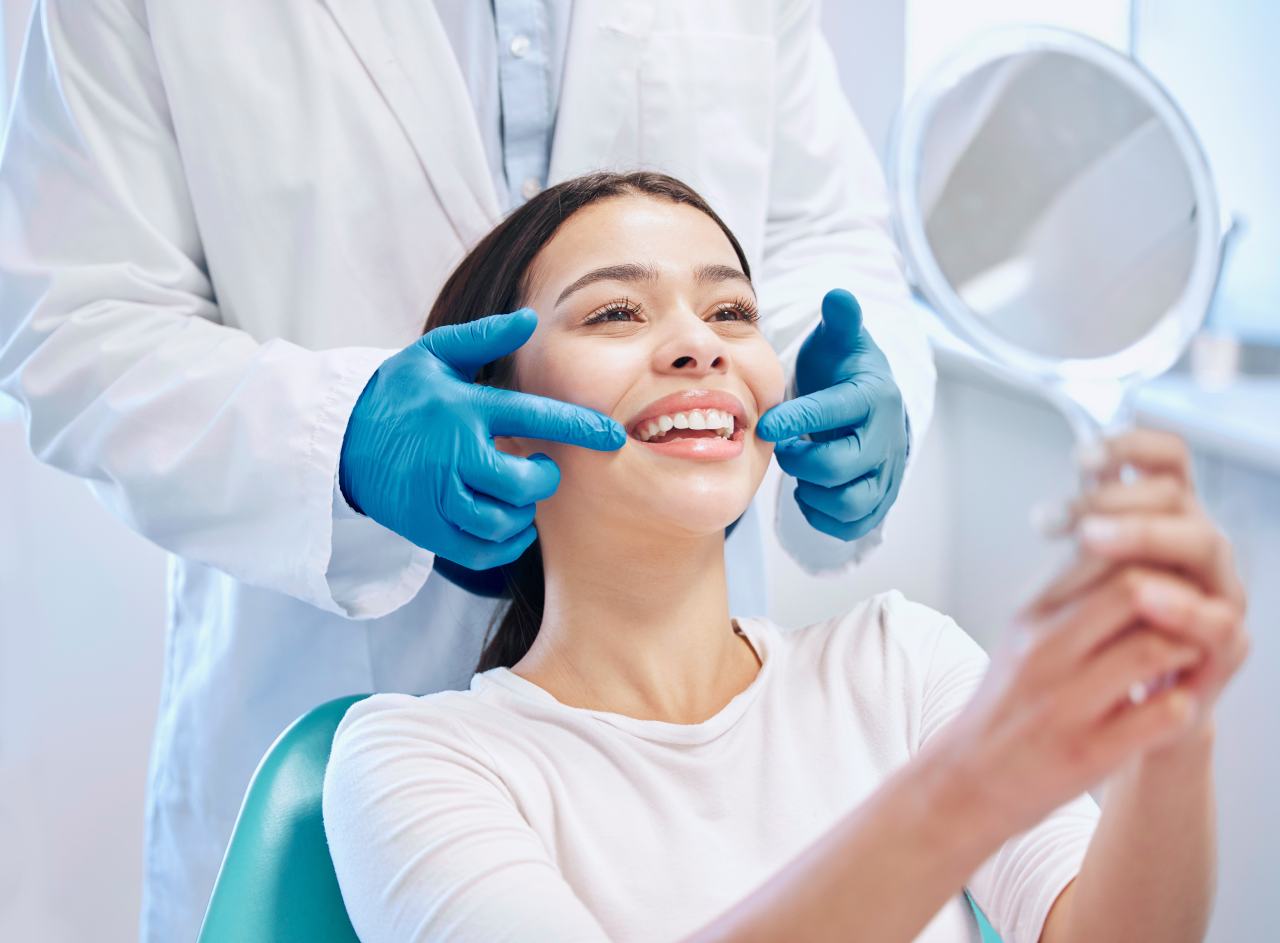
- We recommend that you get a dental cleaning every six months, which help us prevent and detect future problems. These regular, thorough inspections of your mouth include all of the following:
- Examination of X-rays: We take a few x-rays to help us detect any decay, tumors, cysts, or bone loss.
- Oral Cancer Screening: We evaluate the neck, lips, tongue, throat, tissues, and gums for signs of oral cancer.
- Gum Disease Evaluation: We check the gums and bones around the teeth for signs of periodontal disease.
- Examination of tooth decay: We make sure each tooth is healthy and showing no signs of decay.
- Examination of existing restorations: If you have fillings, crowns, or sealants we will check their condition.
- Removal of Calculus (tartar): Calculus is plaque that has hardened over time and become firmly attached to the surface of a tooth in hard-to-reach places. Our special dental instruments allow us to remove the tartar that your own brushing and flossing can’t. This is very important, as untreated plaque and bacteria can make its way into the gums.
- Removal of plaque: Plaque is a sticky film that forms on the surface of your teeth. It is food debris, saliva, and bacteria that will produce toxins that can inflame the gums and lead to periodontal disease.
- Teeth polishing: We polish your teeth to remove stains and plaque and brighten your smile.

- We care about our patients and will do everything possible in our office to give you a healthy smile. However, we understand that a large part of the responsibility falls on you and what happens in your home. Here are some important dental hygiene tips:
- Brushing
Brush twice a day – in the morning, and right before bed, which is important so that sugar and plaque isn’t on your teeth all night long as you sleep. For the best results, brush at a 45 degree angle to the gums with small, circular motions. Be gentle on your gums – brushing too hard can damage your gums. Make sure you get all sides of your teeth, as well as your tongue. We recommend electric toothbrushes, but they are not necessary.
- Flossing
It may seem like a hassle, but flossing is crucial. Make it a habit to floss everyday. The crevices between your teeth is a perfect place for plaque and bacteria to grow. Take 12-16 inches of dental floss and wrap it around your middle fingers. Leave a couple inches between your hands. Guiding the floss with your thumbs and forefingers, curve the floss into a “C” shape around each tooth and under the gum line. Gently move up and down the side of each tooth.
- Rinsing
Rinse your mouth after brushing, as well as after eating if you’re unable to brush. Talk to us about which rinsing products are right for your teeth.
- Fluoride
For kids under 18 years old, we use fluoride in their regular hygiene appointments. Fluoride can also be used as a supplement to regular hygiene visits for adults. It helps to seal dentinal tubules which cause root sensitivity, and prevent tooth decay. It also can help to seal the margins of crowns, which prevents decay from getting underneath the crown. Dr. Hansen can help you know if fluoride is a good fit for your circumstances.


